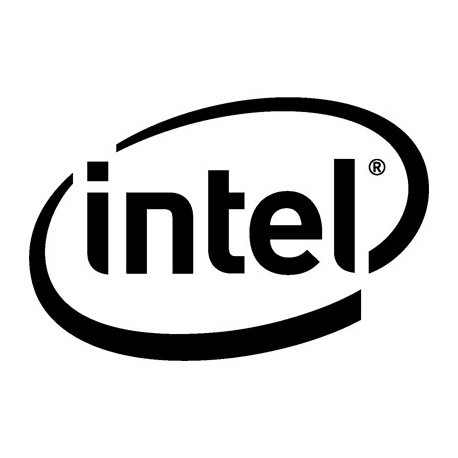<b>Intel® Trusted Execution Technology</b><br>Intel® Trusted Execution Technology for safer computing is a versatile set of hardware extensions to Intel® processors and chipsets that enhance the digital office platform with security capabilities such as measured launch and protected execution. It enables an environment where applications can run within their own space, protected from all other software on the system.<br><br><b>Intel® Virtualization Technology for Directed I/O (VT-d)</b><br>Intel® Virtualization Technology for Directed I/O (VT-d) continues from the existing support for IA-32 (VT-x) and Itanium® processor (VT-i) virtualization adding new support for I/O-device virtualization. Intel VT-d can help end users improve security and reliability of the systems and also improve performance of I/O devices in virtualized environments.<br><br><b>TPM Version</b><br>TPM (Trusted Platform Module) is a component that provides hardware level security upon system boot-up via stored security keys, passwords, encryption and hash functions.<br><br><b>Integrated BMC with IPMI</b><br>IPMI (Intelligent Platform Management Interface) is a standardized interface used for out-of-band management of computer systems. The integrated BMC (Baseboard Management Controller) is a specialized microcontroller that enables IPMI.<br><br><b>Integrated Graphics</b><br>Integrated graphics allow for incredible visual quality, faster graphic performance and flexible display options without the need for a separate graphics card.<br><br><b>Intel® Optane™ Memory Supported</b><br>Intel® Optane™ memory is a revolutionary new class of non-volatile memory that sits in between system memory and storage to accelerate system performance and responsiveness. When combined with the Intel® Rapid Storage Technology Driver, it seamlessly manages multiple tiers of storage while presenting one virtual drive to the OS, ensuring that data frequently used resides on the fastest tier of storage. Intel® Optane™ memory requires specific hardware and software configuration.<br><br><b>RAID Configuration</b><br>RAID (Redundant Array of Independent Disks) is a storage technology that combines multiple disk drive components into a single logical unit, and distributes data across the array defined by RAID levels, indicative of the level of redundancy and performance required.<br><br><b>Intel® Remote Management Module Support</b><br>The Intel® Remote Management Module (Intel® RMM) allows you to securely gain access and control servers and other devices from any machine on the network. Remote access includes remote management capability, including power control, KVM, and media redirection, with a dedicated management network interface card (NIC).<br><br><b>Intel® Advanced Management Technology</b><br>Intel® Advanced Management Technology features an isolated, independent, secure, and highly reliable network connection, with an Integrated Baseboard Management Controller (Integrated BMC) configuration from within BIOS. Also includes an embedded web user interface that launches key platform diagnostic capabilities over the network, an out-of-band (OOB) platform inventory, failsafe firmware updates, and an automatic Integrated BMC stall detection and reset.<br><br><b>Intel® Total Memory Encryption</b><br>TME – Total Memory Encryption (TME) helps protect data against exposure via physical attack on memory, such as cold-boot attacks.<br><br><b>Max # of UPI Links</b><br>Intel® Ultra Path Interconnect (UPI) links are a high speed, point-to-point interconnect bus between the processors, delivering increased bandwidth and performance over Intel® QPI.<br><br><b>Intel® Node Manager</b><br>Intel® Intelligent Power Node Manager is a platform resident technology that enforces power and thermal policies for the platform. It enables data center power and thermal management by exposing an external interface to management software through which platform policies can be specified. It also enables specific data center power management usage models such as power limiting.<br><br><b>Intel® Optane™ Persistent Memory Supported</b><br>Intel® Optane™ persistent memory is a revolutionary tier of non-volatile memory that sits between memory and storage to provide large, affordable memory capacity that is comparable to DRAM performance. Delivering large system-level memory capacity when combined with traditional DRAM, Intel Optane persistent memory is helping transform critical memory constrained workloads – from cloud, databases, in-memory analytics, virtualization, and content delivery networks.Intel M50FCP1UR212. Motherboard chipset: Intel C741, Processor socket: LGA 4677 (Socket E), Processor manufacturer: Intel. Supported memory types: DDR5-SDRAM, Maximum internal memory: 12 TB. Storage drive sizes supported: M.2, Supported storage drive types: SSD, RAID levels: 0, 1, 5, 10. Export Control Classification Number (ECCN): 5A002U, Commodity Classification Automated Tracking System (CCATS): G157815L1. Chassis type: Rack (1U)


